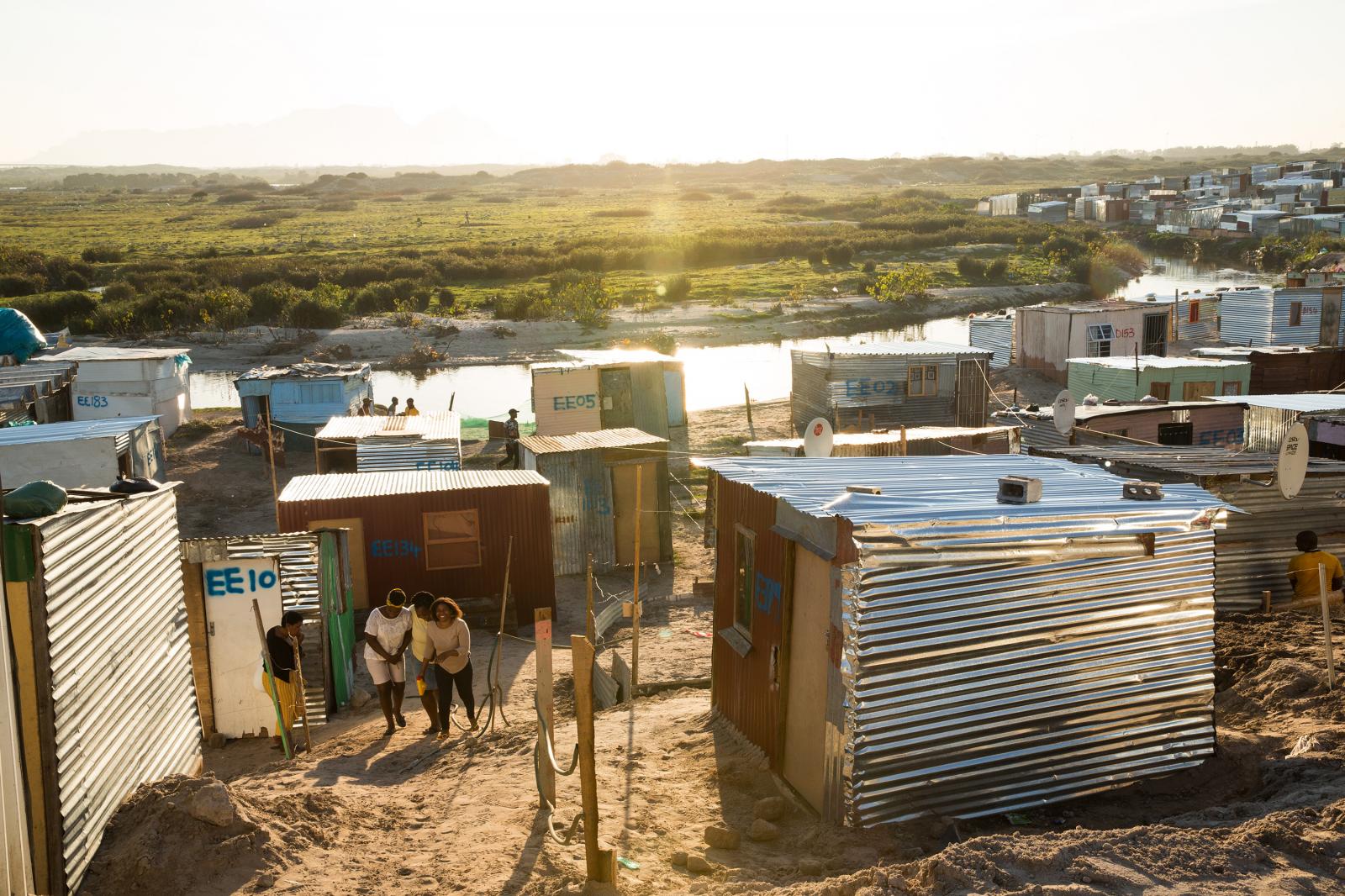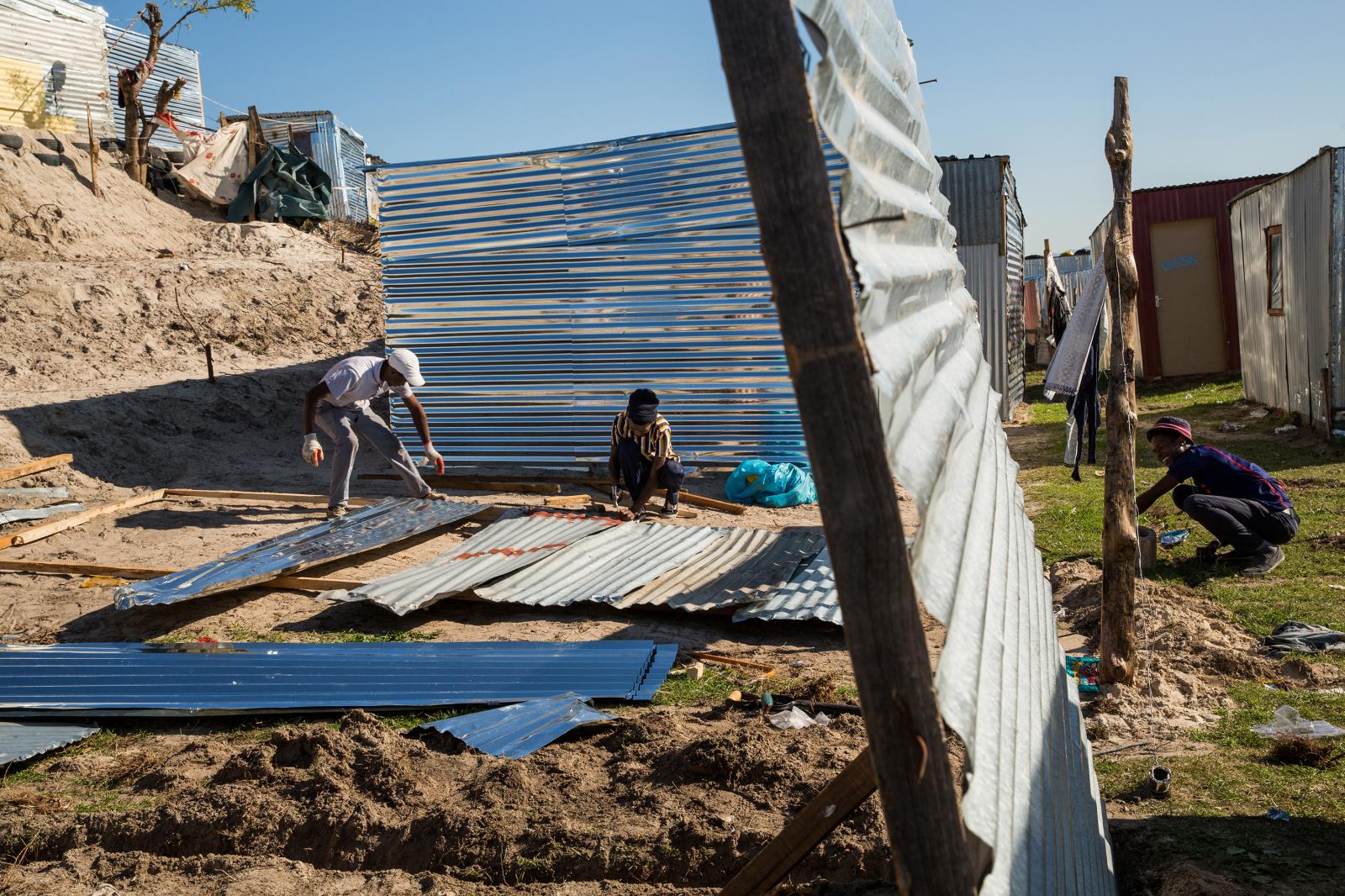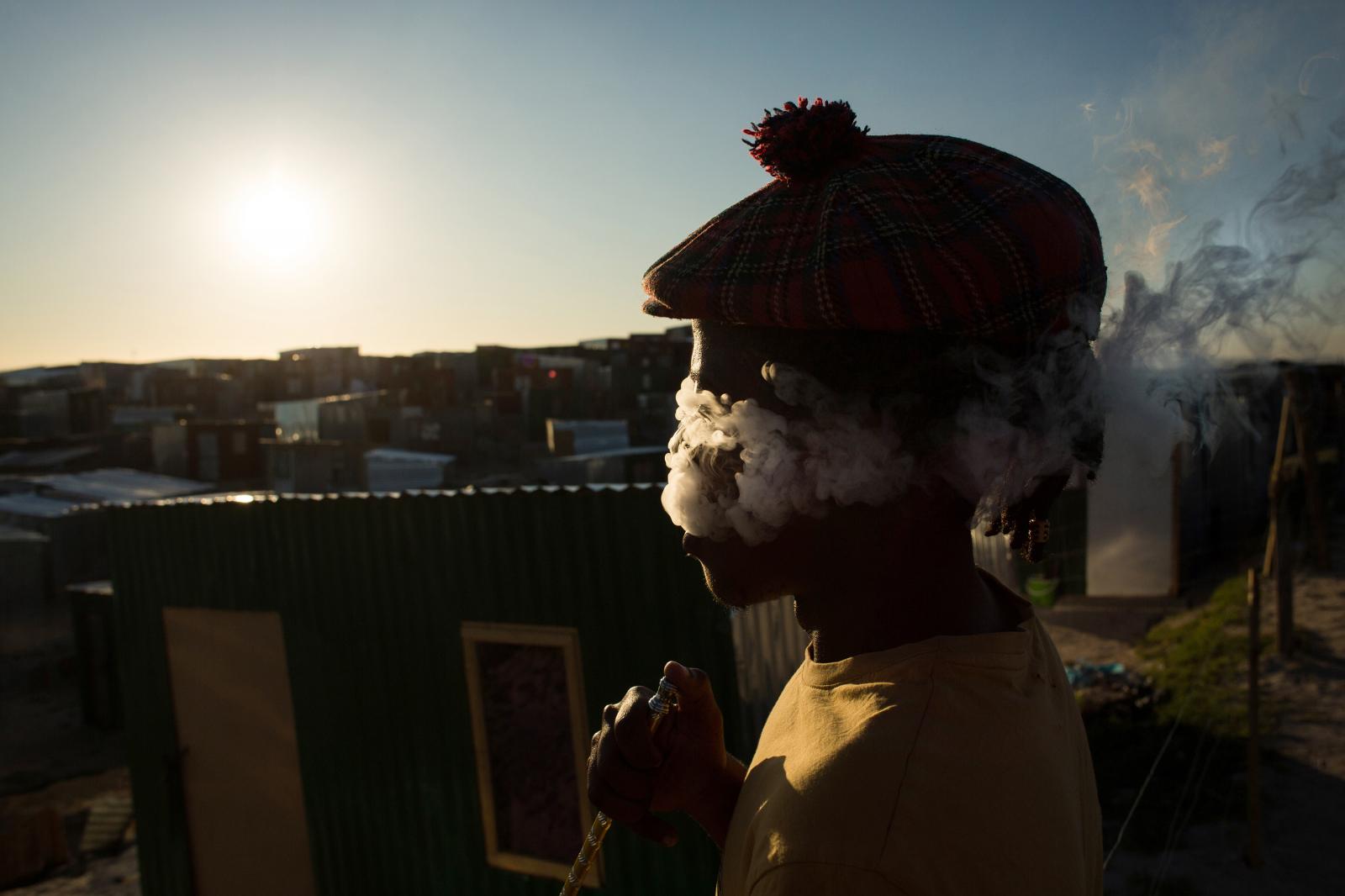Izwelethu – or as the residents call it - “Covid” - is a densely populated informal settlement in Cape Town, South Africa comprising more than 800 tin shacks and 3,000-plus residents. It’s still growing. It was founded in March 2021, and has been weathering a number of storms ever since—the weather related ones that the “Cape of Storms” is infamous for, and the gloomy epidemiological storm of a global pandemic.
The shacks bump up against the existing township of Mfuleni on one side and the Kuils River and a Cape Nature Reserve on the other. Standing on its sandy hilltop, you can see Table Mountain, and Cape Town’s wealthy suburbs, in the distance.
This is just one of many new settlements that have sprung up on the outskirts of Cape Town since South Africa’s lockdown, and it’s resultant economic turmoil, began. There are others too: names such as Level 2, Covid 19, Pandemic, Social Distance and Lock Down reflect their existence in this specific moment in history.
The city and government are calling these new settlements land invasions. In a way they are old hat in South Africa; the country is built, after all, on a centuries-long legacy of land dispossession. Still, there’s been a staggering rise in them since the Coronavirus hit.
In Cape Town, at least, the reason is obvious: The majority of the city’s economically vulnerable township citizens lost their jobs and income when the country went into lockdown. Many of these people, who were already living in shacks in the backyards of other homes, could no longer afford their rent. So they looked for land where they could erect new shacks and live rent-free.
The new movement of thousands though came somewhat predictable – and seen before scenes.
As soon as these new settlements are erected, they torn down, often with brute force, by teams of contract workers, city employees, and the Anti-Land Invasion Unit—the largest law-enforcement operation in the City of Cape Town, with members dressed head to toe in riot gear and carrying shotguns—will descend on a settlement unannounced, often when they are still small in number.
There’s little compassion for the people who live in the shacks, or dignity afforded those whose homes are destroyed. Possessions are trampled on or thrown in the dirt. The metal sheets used as walls and roofs are confiscated and loaded onto large trucks. If an angry crowd forms, rubber bullets are used to disperse them.
The outrage of township communities first boiled over into violence in the middle of the winter when, on July 1, a video—so disturbing that local news stations preceded it with a warning—went viral. At a time when the government was telling citizens to stay in their homes, it showed a naked man named Bulelani Qolani being dragged from his makeshift house as the shack was razed by the Anti-Land Invasion Unit.
The unit has been extremely busy since this graphic incident. At that time, according to Cape Town Mayor Dan Plato, it has removed more than 55,000 illegal structures in about 30 parts of the metro area. “There have been well over 100 separate land-invasion incidents recorded,” he says.
Those aren’t figures that everyone in Cape Town is proud of—or even OK with.
The people who live on the sandy stretches that comprise Covid agree. They’re here out of desperation, not choice. While they may have a piece of tin over their heads at night - the settlements have no electricity (making them unsafe at night), only a few taps with running water and, most importantly, no waste or sanitation services at all.
Recently a grouping of shack dwellers have established the Intlungu yaseMatyotyombeni Movement (IYM) coordinating efforts to pressurize the city to provide services in their newly established settlements. “To the City, we say that the National Disaster [Management] Act permits you to help us, because this is a disaster we find ourselves in.”
Plato maintains that the spaces these people are “invading” are “public land earmarked for housing, health care, schools, transport, and basic services.” If they would only get off it, he promises, the city would build them a better community. But history, Covid residents say, has given them little reason to believe him.
In late August, the Cape Town High Court issued an interim interdict barring city officials from evicting illegal land occupiers from their shacks—whether they’re occupied or not—without first obtaining a court order. The order is slated to remain in place for the duration of South Africa’s National State of Disaster, recently pushed forward until January 2021. The city has appealed the ruling.
Covid residents know that the court decision probably won’t improve their daily lives. If anything, the likelihood of conflict will only grow. As the pandemic continues and jobs vanish, more people will become desperate. Which means there will be more settlements like Covid—and more places for the Anti-Land Invasion Unit to raze.
The future – like the future of life in the time of the pandemic – remains uncertain.


























